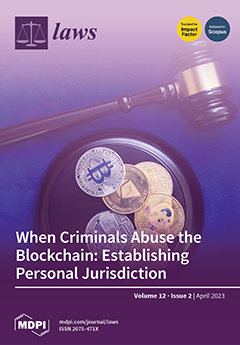This article outlines and critiques the Australian jurisprudence that has addressed whether minors are able to lawfully consent to gender-affirming hormone treatment, with reference to the landmark decision of
Gillick v West Norfolk and Wisbech Area Health Authority. Although the principle of
[...] Read more.
This article outlines and critiques the Australian jurisprudence that has addressed whether minors are able to lawfully consent to gender-affirming hormone treatment, with reference to the landmark decision of
Gillick v West Norfolk and Wisbech Area Health Authority. Although the principle of
Gillick competency is well recognised in law, the Australian legal developments that apply
Gillick to decisions about the commencement of gender-affirming treatment, have taken the principle astray. The approach under Australian law has diverged down a path that does not align with the original reasoning in
Gillick, nor its contemporary interpretation. I outline the reasoning in
Gillick so that the foundational principles are considered before discussing how
Gillick has been interpreted and applied in subsequent cases. I then provide an outline of the key legal developments in Australia relevant to minors and the commencement of hormone treatment for gender dysphoria. I undertake a critique of the Australian law in this field and conclude that there is a need for future judicial determination of how
Gillick should be applied, not only in the cases relevant to gender dysphoria, but beyond, so that the position in respect of minors’ decision-making is clarified. This is vitally important because the current approach to this issue has potential implications beyond cases relevant to gender-affirming hormone treatment.
Full article





